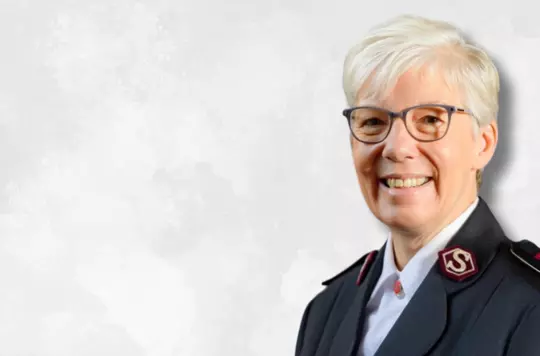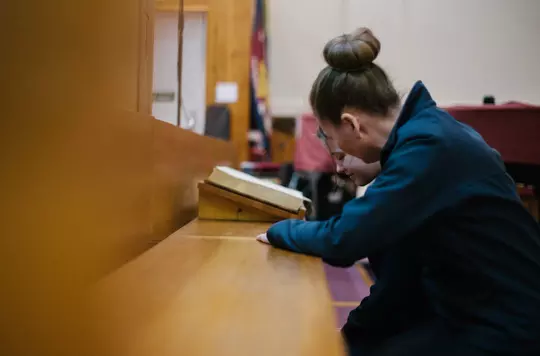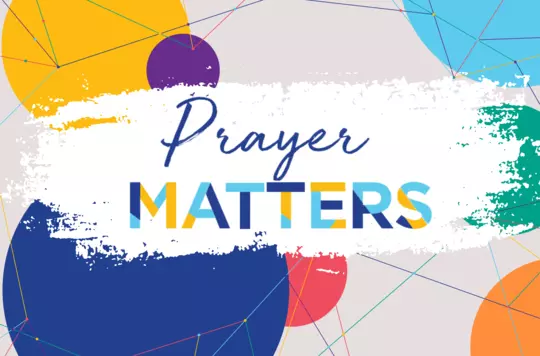6 January 2024
Covenant Sunday 2024: What habits of faithfulness are you building?
Lyndall Bywater

Lyndall Bywater asks how you are living in response to God’s unfailing love.
I developed a new habit last year. At time of writing, I have a 133-day unbroken streak on Duolingo, the popular language-learning app. Before you applaud my dedication, let me tell you that learning languages is one of my favourite things, so this habit has been very easy to form: I’ve simply found something I love and I do it every day.
This year, Covenant Sunday invites us all to consider our faithful response to God. It’s had me pondering what it means to develop a habit. After all, faithfulness is built on habits, isn’t it?
Being faithful to a much-loved sports team involves making a habit of following their progress, going to games, mourning their losses and getting ludicrously excited at their victories. Being faithful in our relationships means making a habit of spending time together, going out of our way to support each other and doing the things that we know help the relationship to flourish.
God has made all sorts of habits of faithfulness towards us, not least because he remains faithful even if we are faithless (see 2 Timothy 2:13). At the start of this new year, as Christians we pause to consider what habits we might like to build into our lives as a response to that unfailing, unending faithfulness.
If you can already feel the ‘must try harder’ guilt settling on your soul, take heart: this isn’t a lecture on how we should all be doing better. Consider in Hebrews 10 how the letter to the church encourages us to make some faithfulness habits, but at no point does it say we should do it all in our own strength or out of an oppressive sense of duty.
‘This is the new covenant I will make with my people on that day, says the Lord: I will put my laws in their hearts, and I will write them on their minds’ (Hebrews 10:16 New Living Translation).
The writer talks about God imprinting God’s ‘law’ – God’s ways of doing things – on our hearts. That means we don’t do good things because we have to; more and more, we do them because we want to and because they’re what seems most right to our hearts.
We form habits around things that matter to us. Learning languages matters to me because I love it; there are other things that matter to me because I want to express my care for my loved ones, or because I want to help make the world a fairer place. If we try to form a habit because we feel guilty or because someone else says we should, it’s very unlikely to stick, but if we form habits around the things imprinted on our hearts, we stand a much better chance of keeping them.
What brings you joy? What matters to you? What changes do you want to help bring about in 2024? The answers to those questions may just help you work out which habits of faithfulness you want to begin building today.
4 faithful habits
Hebrews 10:11–25 suggest four responses we might make to God’s faithfulness. Which will you try to build into your 2024?
- A habit of prayer (see vv17–22)
- A habit of hope (see v23)
- A habit of kindness (see v24)
- A habit of unity (see vv24 and 25)
Written by

Lyndall Bywater
UKI Boiler Room Team
Discover more

Territorial Leader Commissioner Jenine Main shares a new year message.

Major Steve Dutfield reflects on how a shared sense of belonging is connected to discipleship.

